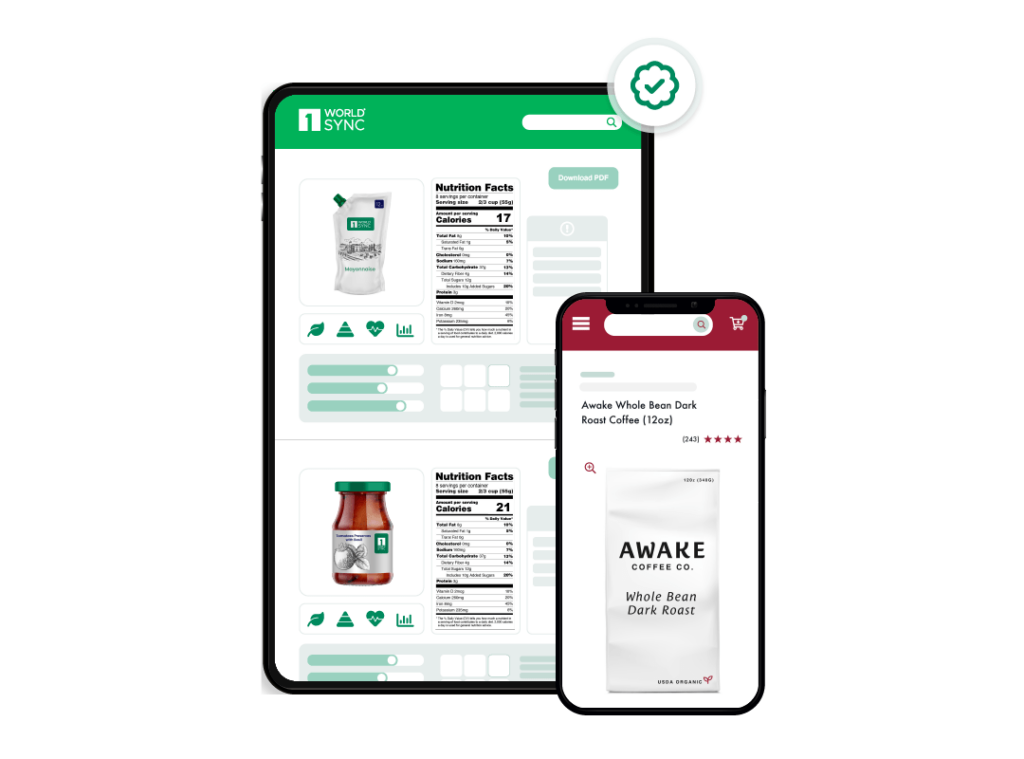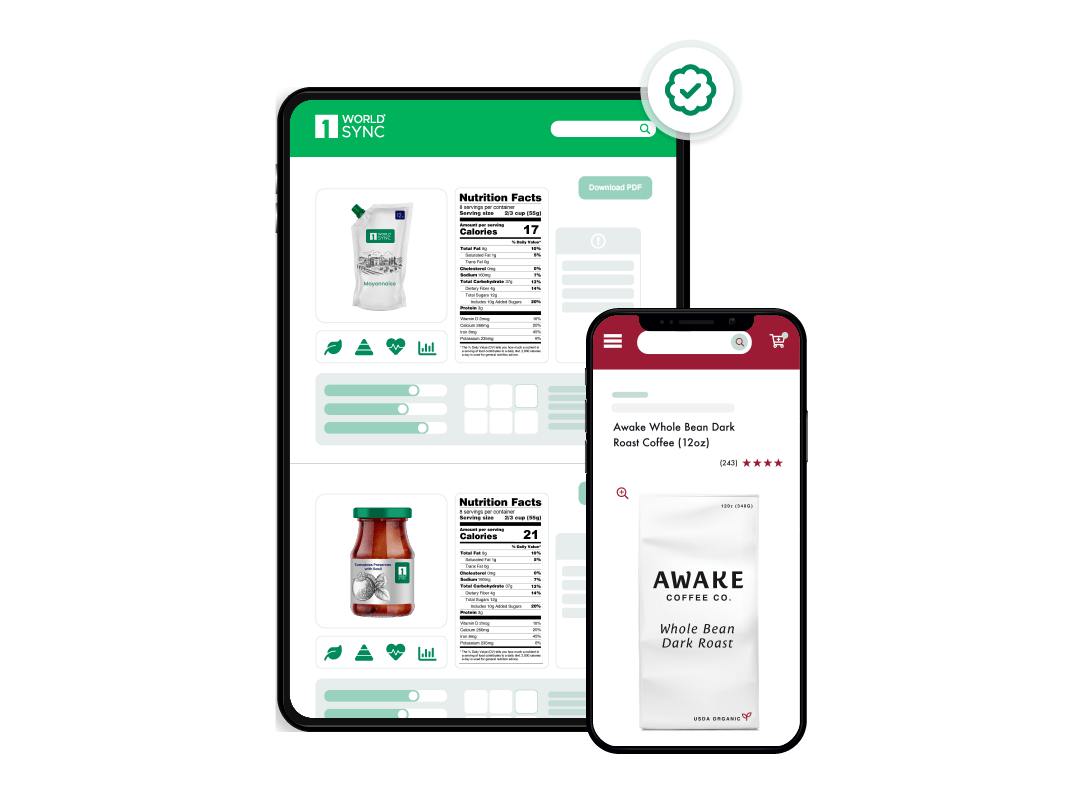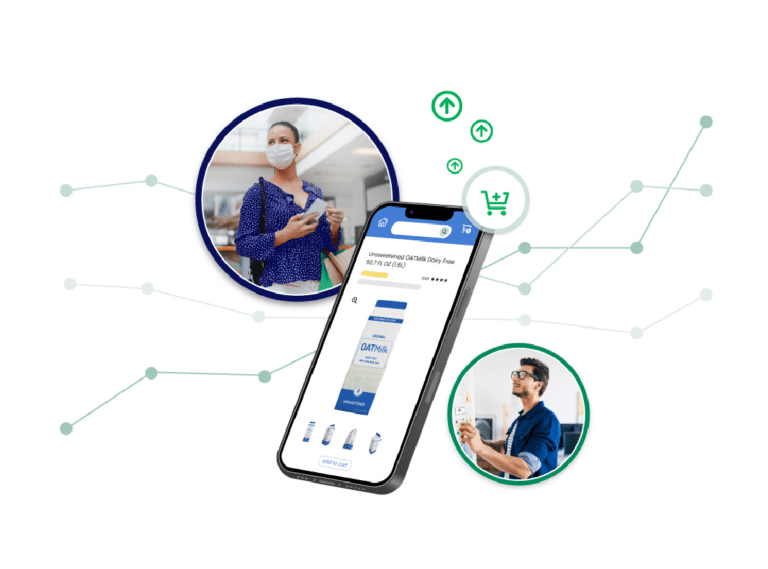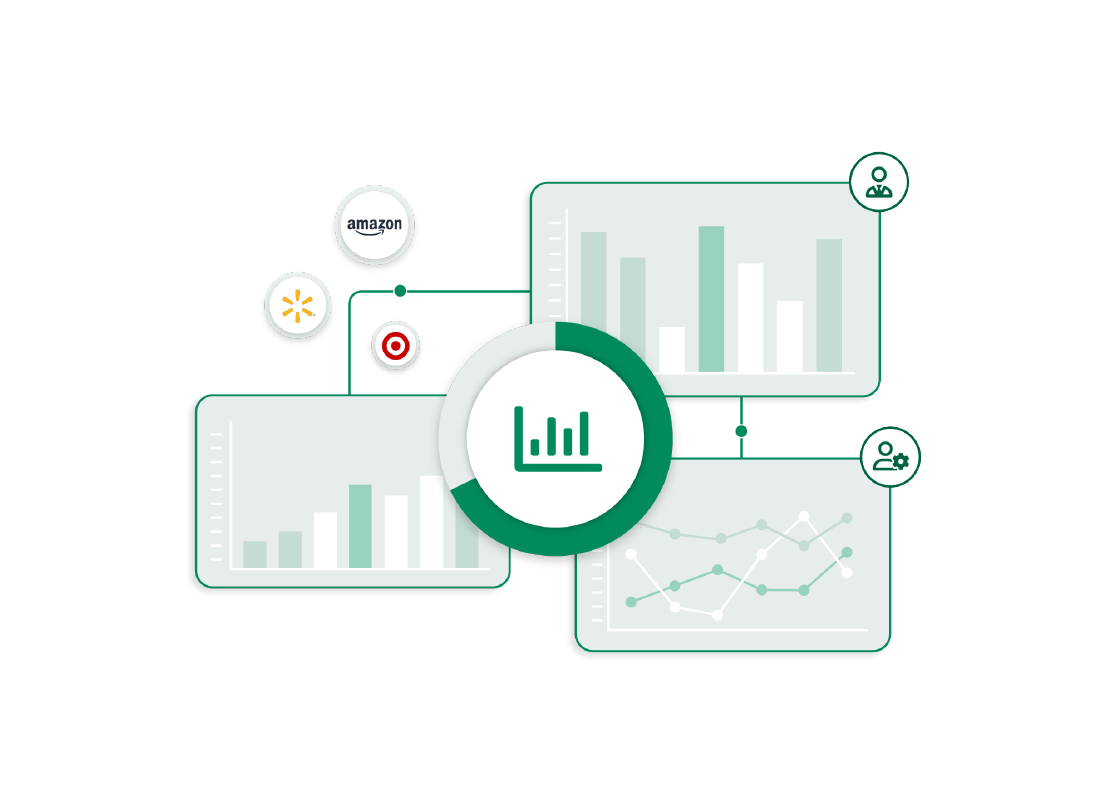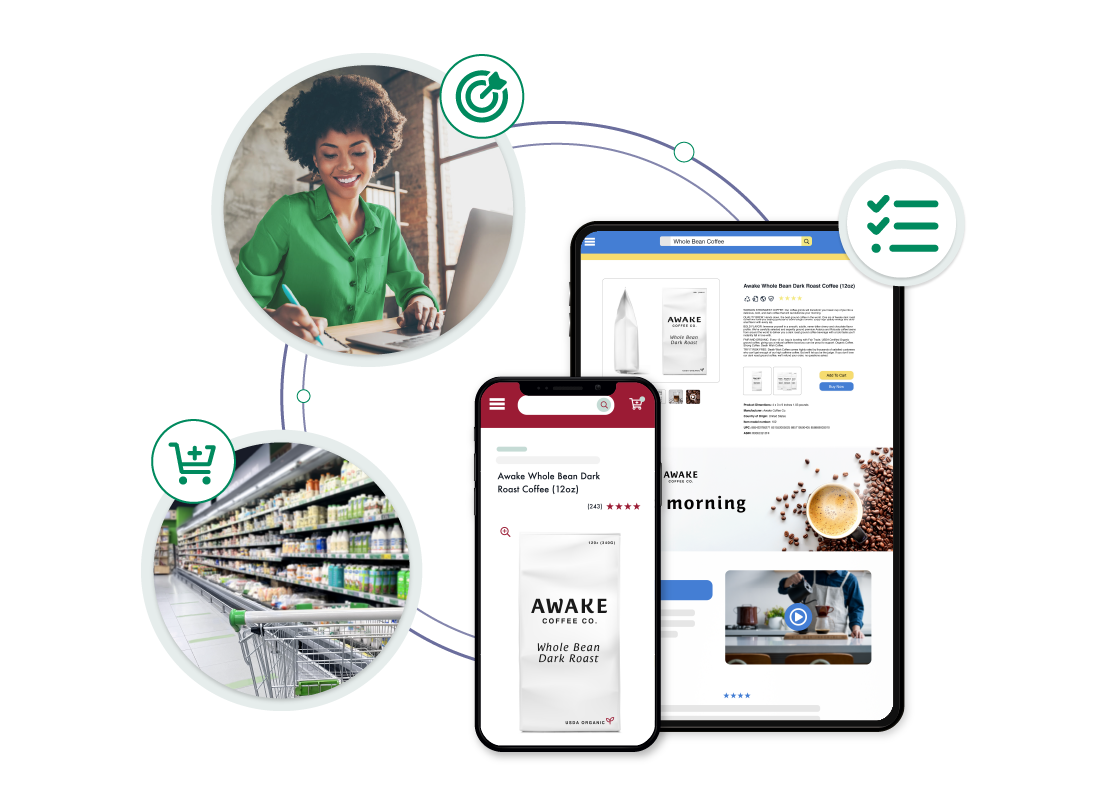In a retail market where online shopping is the new norm, brands must deliver exceptional omnichannel shopping experiences to win the digital shelf. This latest article from 1WorldSync details the differences between data standardization and validation and how the two work together to help you win market share.
What is Data Validation, and Why Is It Important?
Every product you sell has valuable attributes required by trade partners and needed by consumers. Leveraging a platform that enables you to validate your product content against retailer requirements in real-time ensures the data you are syndicating is accurate and trusted.
Inaccurate product content inhibits operations in every industry. Harvard Business Review notes that bad data costs businesses $3 trillion annually. When data isn’t validated it can cause an increase in time to market and lost revenue.
By implementing a platform with in-depth knowledge of trading partner requirements, you eliminate preventable data errors and streamline your operations –– and those of your retail partners. Product data validation is essential for a positive relationship with trade partners and a positive consumer experience.
Types of Data Validation
Every trading partner required attribute must be validated. The process of data validation includes running a series of checks to ensure it conforms to requirements. Below are the most common data validation checks:
1. Code Check: covers checks for required attributes from retail partners and ensures the required attributes match partner standards
2. Range Check: ensures attributes stay within a specified range of values
3. Format Check: ensures data fits a predetermined format
4. Consistency Check: ensures properties match formatting rules
5. Uniqueness Check: ensures attributes aren’t entered into a database multiple times
Data validation reviews product data to facilitate correct and speedy information processing. It ensures that the data is clean, accurate, and usable. And when combined with data standardization, it helps you deliver product data that increases your sales –– and revenue.
Adopting Standards
Data standardization places records from various databases into a standard format. Standardization ensures data consistency in an online store. GS1® standards are the most widely used system of standards in the world. By enabling the sharing of trusted quality data everywhere, they tell the story behind products—where they originated, what they contain and where they have been during their supply-chain journey.
When data is consistent, shoppers enjoy an effortless, pleasant shopping experience. Data standardization reduces friction in decision-making, leading to more sales and higher customer satisfaction.
Benefits of Data Standardization
Standardizing data creates consistency: a crucial component for brands, retail partners, and consumers in an omnichannel market. The typical buyer journey isn’t limited to a single channel. Content must meet consumer needs wherever shoppers interact with a brand. Recent 1WorldSync research found that 84 percent of consumers expect a seamless, easy-to-consume product content experience across channels. Data standardization makes that possible.
Below are a few benefits of data standardization:
1. Maintains Information Sanity
Standardized data empowers brands to manage and monitor relevant and irrelevant product information. Understanding which content is useful allows you to prioritize it, so users can easily find the information most important to them.
2. Streamlined Flow of Information
Uniformity and consistency promote efficient business systems. This is also true for standardized data.
Capitalize on organized data prioritized by usefulness and relevancy. When routine tasks have been automated through standardization, team members can work more efficiently and effectively.
3. Effective Data Performance
To compete in your market, you must understand how your data performs. Data standardization helps maintain high-quality data. The practice lets you see what information or content you need to add and which details are superfluous and irrelevant.
4. Guides Consumer Decision Making
Consumers need –– and demand –– ample product information before making a purchase decision. Product imagery, written descriptions, shipping details, and product feature lists contribute to a positive brand experience.
Data standardization ensures you provide shoppers with the information they need to purchase your products confidently.
5. Increases Customer Acquisition Rates
Data standardization gives you a competitive advantage over your competition. Standardized data is
- Better organized
- Easy to consume
- Easily readable thanks to consistent formatting, and
- Answers user questions
All these factors contribute to a quality shopping experience. When consumers have the data they need in the format they need, they’re more likely to purchase.
Impact of Data Standardization and Validation on Your E-Commerce Business
Clean, accurate data is a must for your business. It affects your brand reputation among customers and trading partners. It increases operational efficiency. And it helps your business grow. Below we examine three significant impacts of data standardization and validation on e-commerce businesses like yours.
1. Cost Reduction
Data errors cause halts in production and delivery. They negatively affect customers’ online experiences. Incorrect, unverified data is the source of countless headaches at all stages of the buyer’s journey.
But clean data is the opposite, preventing needless resource waste. When data is accurate and formatted correctly, you enjoy streamlined operations from start to finish. You meet customer expectations. And ultimately, you eliminate costs resulting from incorrect data.
2. Increased Profits
Data validation and standardization can increase e-commerce profits in various ways. From reducing the occurrences of poorly targeted information to increasing your marketing strategy ROI, quality data helps you earn more at every turn.
3. Improved Customer Satisfaction and Brand Loyalty
The digital shelf is ever-expanding. Consumers have endless options for finding and buying the solutions they’re searching for. Poor data quality affects brand perception and drives shoppers away from your products and directly to your competition.
By implementing data standardization and validation processes, you contribute to an excellent customer experience. Correct data provides consumers with the information and content they need to make an informed, confident purchase.
Quality data empowers buyers and cultivates brand loyalty that will benefit your brand long term.
4. GDSN Compatibility
The Global Data Synchronization Network is the world’s largest information network. The GDSN is the universal means for product data sharing. It ensures trading partners have immediate access to the most current and complete product information.
To make the most of the access provided by the GDSN, you must practice data standardization and validation through a quality data pool provider. GDSN compliance is the first step in accessing trading partners and consumers.
Choosing 1WorldSync as your data pool provider enables you to publish content to the GDSN seamlessly and instantly, sharing it with your trading partners. Our data pool provides validation and standardization options that ensure your product content stays compliant and up to date, allowing you to take full advantage of all opportunities the GDSN has to offer.
Partnering with 1WorldSync for the High-Quality Data You Need
When you sell online, your product data quality is invaluable. You operate in a highly competitive market where you cannot afford a single data error.
Standardizing and validating your data optimizes your digital presence while improving partner and customer relationships. High-quality data is a must for any brand that wants to earn a spot on the digital shelf.
1WorldSync has the tools, solutions and expertise to help you deliver high-quality data consistently and efficiently. Contact our team to take advantage of our data validation and standardization solutions so you can sell more starting today.
